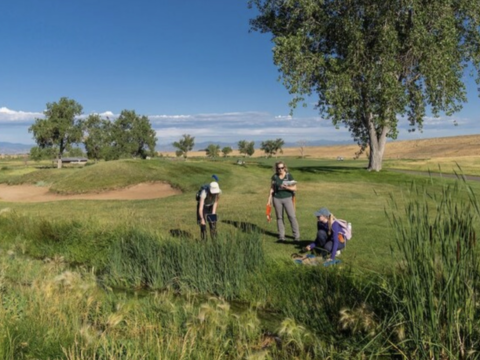Demonstrating the value of golf courses
During the Covid-19 lockdown in the UK, a public campaign was launched to open courses for public exercise.
While some courses voluntarily opened their gates as acts of goodwill to local citizens – as experienced by Prof. Jenny Roe in Edinburgh – the vast majority did not.
The campaign might be an indication of future pressures on green spaces, including golf courses, especially as growing populations swell urban areas.
According to Jonathan Smith, Executive Director of GEO Foundation, the international not-for-profit dedicated to helping golf gain greater recognition for its value to people and nature, there is a clear opportunity.
“Golf could become such a valued and welcome land use, particularly in a world where communities are appreciating nature, and are recognizing that the quality of the local environment is directly linked to the quality of life.
“The win-win is that golf courses that are naturalized are less expensive to maintain, provide more stimulation to golfers, create opportunities for other types of recreation and deliver many wider ecosystem services to society.”
But how do you value a golf course as a green space, with social and environmental benefits?
Measurement and evaluation is already integrated into GEO’s OnCourse® and GEO Certified® programs.
Last year, the GEO team completed a significant international ‘Sustainability reporting for golf’ project, involving over 200 people in consultation, gathering all of the social and environmental metrics required to value and communicate the value of a golf course’s green space.
This includes carbon emission and sequestration calculations as well as annual Sustainability Reports. It will be broadened in future to include further ecosystem service and natural capital elements.
“It’s really about quantifying, increasing and then promoting the whole range of environmental and social services a local golf club provides, as well as being open about the resources that are used to sustain that value,” says Smith.
Take action
- Learn more about sustainable golf with GEO Foundation

